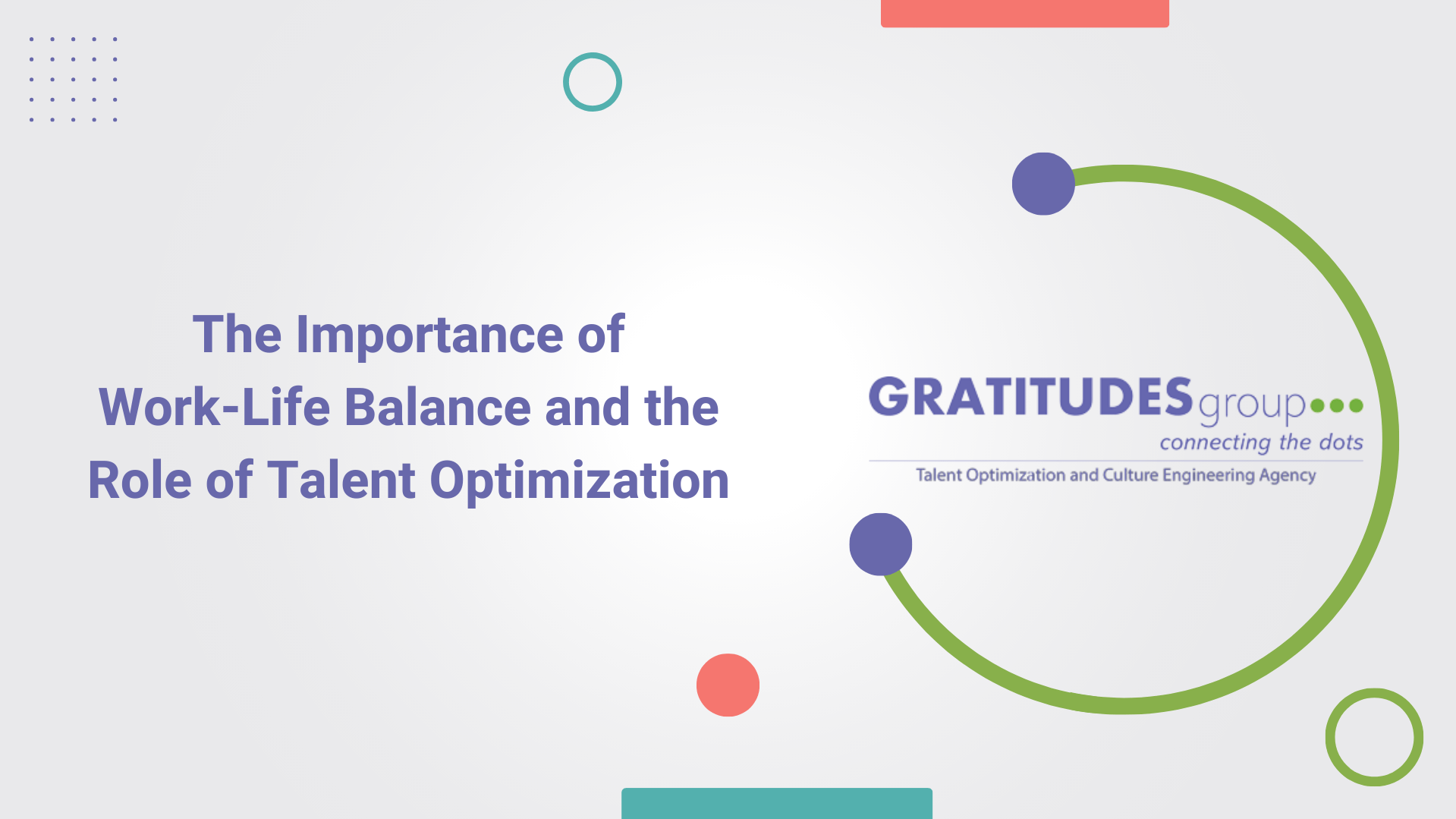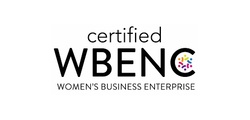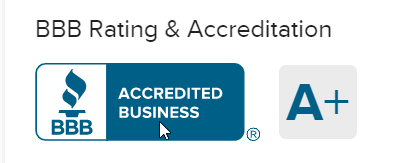GRATITUDESgroup is a consulting firm focused on driving positive change in organizations and communities. We are passionate about helping our clients reach their goals, whether it’s improving performance, developing people, or creating solutions for talent optimization and increasing employee retention. Our team of experts brings decades of experience in a variety of industries, from human resources to business strategy and beyond. Not only do we provide professional services, but we also strive to create an inspiring environment for our clients and partners.
In today’s hyperconnected world, achieving a healthy work-life balance has become more critical than ever before. The boundaries between work and personal life have blurred, leading to increased stress, burnout, and dissatisfaction among employees. Maintaining an equilibrium between one’s professional responsibilities and personal life is not just a matter of employee well-being; it directly impacts an organization’s success and sustainability. When employees are able to invest their time in outside factors such as building positive relationships, spending time with family, and working on their mental and physical health, they are more likely to promote higher job satisfaction and increased job performance. This is where talent optimization steps in as a pivotal player in fostering a harmonious work-life balance.
What is Talent Optimization?
Talent optimization can be defined as the art of maximizing the potential of an organization’s workforce. It involves a holistic approach that aligns people, strategy, and business goals to create an environment where employees can flourish. Talent optimization goes beyond traditional human resources practices; it focuses on driving employee engagement, developing skills, and fostering a purpose-driven culture.
Employee Well-Being and Retention
One of the foremost reasons why work-life balance is indispensable lies in its direct influence on employee well-being and retention. When employees feel overwhelmed by excessive workloads and long hours, their physical and mental health often suffer. This can lead to decreased productivity, absenteeism, and eventually attrition. Talent optimization, by aligning the organizational culture with the values and aspirations of the employees, can help reduce work-related stressors. By identifying and addressing the root causes of dissatisfaction and burnout, talent optimization contributes to a healthier work environment where employees feel supported in their pursuit of work-life balance.
Enhanced Productivity and Innovation
Contrary to the belief that longer hours equate to higher productivity, overworking often results in diminished efficiency and creativity. Talent optimization focuses on ensuring that employees have the necessary resources, training, and support to excel in their roles. Engaged employees are the lifeblood of any successful organization. Talent optimization focuses on engaging employees through recognition, training, and development programs. By investing in their growth and offering opportunities for learning, organizations demonstrate their commitment to employee well-being and professional advancement. Engaged employees are more productive, loyal, and passionate about their work.
When employees are allowed the time and space to recharge and rejuvenate outside of work, they return to their jobs with renewed energy and fresh perspectives. A poor work-life balance would not afford this revitalization. This boosts creativity, problem-solving abilities, and overall productivity, ultimately benefiting the organization’s bottom line.
Attracting and Retaining Top Talent
In a competitive job market, attracting and retaining top talent is a constant challenge for businesses. Prospective employees increasingly prioritize companies that prioritize their well-being. Organizations that foster a healthy work-life balance through talent optimization practices stand out as more appealing employers. They are more likely to attract high-caliber talent and, just as crucially, retain it. In a world where job-hopping has become commonplace, companies that invest in talent optimization demonstrate their commitment to creating an environment where employees can thrive both personally and professionally.
In conclusion, work-life balance is not just a matter of personal preference; it is a fundamental aspect of organizational success and employee satisfaction. An employee’s access to personal time can be the make-or-break moment for them to stay or leave a company. Talent optimization plays a pivotal role in achieving this balance by aligning an organization’s culture, values, and practices with the well-being and aspirations of its employees. By doing so, it creates an environment where employees can flourish, leading to increased retention, productivity, and the attraction of top talent, all of which contribute to an organization’s long-term success.








